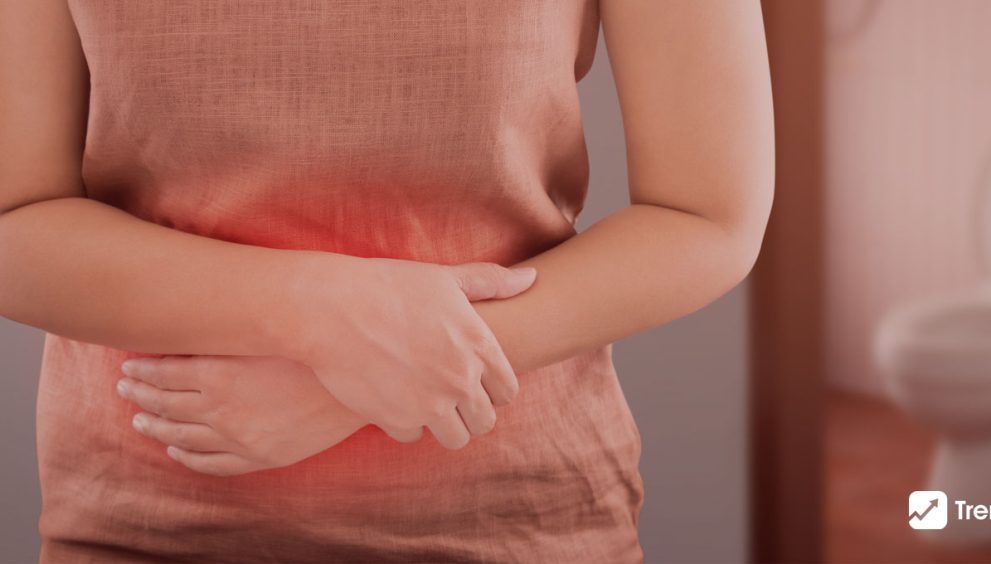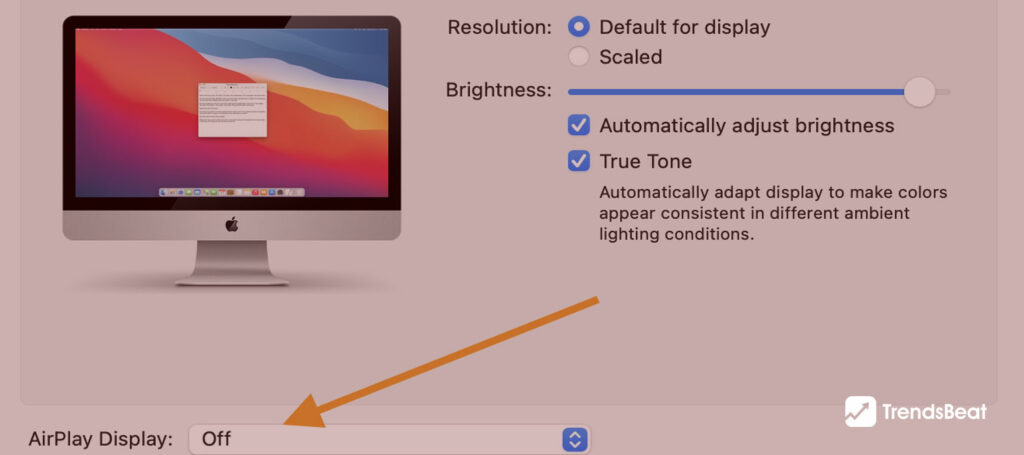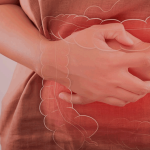What Is Considered Severe Diarrhea? What Causes Severe Diarrhea?

Loose stools that persist for at least four weeks are considered to be severe diarrhea. This typically translates to three or more loose stools each day. In contrast to mild diarrhea, severe diarrhea makes a person pass a liquid or loose stool more frequently and forcefully. The rectum becomes overfilled with liquid and gas, causing severe diarrhea. Due to the gas that is exiting, passing the stool is frequently noisy. Your quality of life and general health might be significantly impacted by chronic diarrhea. When it’s mild, diarrhea is a nuisance; when it’s severe, it could be incapacitating or even fatal. Thankfully, there are solutions that work. But firstly, it is important to understand what chronic diarrhea is and what severe diarrhea causes are. If you are looking for the accurate answer to “what is chronic diarrhea, read on!
What Is Severe Diarrhea?
Severe diarrhea can be categorized as fatty, mal-absorption related, inflammatory, or, most frequently, watery. IBD, also known as ulcerative colitis or Crohn’s disease, may be the cause of chronic bloody diarrhea. Other less frequent causes include colon cancer or polyps, infections, ischemia of the gut, and radiation therapy. Except for parasites, infections that cause chronic diarrhea are rare.
The reasons for severe diarrhea are numerous. Severe diarrhea can be brought on by food poisoning or stomach flu (gastroenteritis). Giardia lamblia parasites can cause diarrhea that appears 1–4 weeks after consuming untreated water. Due to the rapid loss of huge volumes of fluid, severe diarrhea increases the risk of dehydration. Make sure to boost your fluid intakes, such as water or a rehydration beverage, and keep an eye out for dehydration symptoms.
What Causes Severe Diarrhea?
Irritable bowel syndrome (IBS), inflammatory bowel disease (Crohn’s disease and ulcerative colitis), malabsorption syndromes, in which food cannot be digested and absorbed, and persistent infections are some of the most prevalent causes of chronic diarrhea. There are other additional, less frequent reasons for persistent diarrhea.

Irritable Bowel Syndrome
One of the most typical causes of prolonged diarrhea is irritable bowel syndrome. Changes in bowel patterns and crampy abdominal pain might be brought on by IBS (diarrhea, constipation, or both). IBS can arise following an infection.
Inflammatory Bowel Illness
Several other forms of inflammatory bowel illness exist, but the two most prevalent are Crohn’s disease and ulcerative colitis. These disorders may arise when the digestive tract is attacked by the body’s immune system. The presence of blood in the stool is a sign of inflammatory bowel disease.
Medications
Herbs, dietary supplements, and prescription and over-the-counter medications all have the potential to have diarrhea as a side effect. Review your medication list with your doctor, nurse, or pharmacist to see whether one of your medications could be the source of your diarrhea. The medication bottle or the accompanying papers for the majority of prescriptions may also have this information.
Infections
Severe diarrhea is brought on by intestinal infections. Travelers and residents of tropical or resource-constrained nations may contract infections that cause persistent diarrhea. Additionally, consuming contaminated food, water, or unpasteurized (“raw”) milk can result in intestinal illnesses.
Endocrine Conditions
Severe diarrhea and weight loss might result from a hyperactive thyroid (hyperthyroidism). Chronic diarrhea brought on by diabetes is possible if the nerves supplying the digestive system are damaged.
Food Sensitivity Or Allergy
Severe diarrhea can be brought on by hypersensitivity and food allergies. Due to their sensitivity to gluten, people with celiac disease may have diarrhea and weight loss. Gluten is a key ingredient in wheat flour. When consuming milk, those with lactose sensitivity get diarrhea and flatulence.
Risk Factors Of Acute Diarrhea
Diarrhea is most commonly caused by exposure to infectious pathogens. Hand washing and good hygiene are crucial to preventing illness since bacteria and viruses are frequently transmitted through the fecal-oral pathway. Because alcohol-based hand sanitizers may not completely eradicate viruses, soap and water are preferable. Antibiotics and pharmaceuticals containing magnesium are also frequent culprits. Acute diarrhea might also result from recent dietary changes. These include consuming beverages like coffee, tea, colas, diet meals, gums, or mints that have sugars that aren’t easily absorbed. A bacterial cause, such as Campylobacter, Salmonella, Shigella, or Shiga-toxin E. coli, is linked by acute bloody diarrhea. The greatest prevention strategy is to stay away from infected or raw foods and beverages.
EVALUATION OF SEVERE DIARRHEA
If you have had loose or watery stools for more than three or four weeks, you should consult a doctor. If you experience any of these “warning symptoms,” such as bloody diarrhea, fever, dehydration, weight loss, or abdominal pain that keeps you from eating, you might need to be seen by a doctor sooner than this.
When you attend, be sure to let the doctor know when diarrhea started, if there have been any recent changes to your medication or health issues and if you have had any mishaps (leaking or smearing of stool). Additionally, let your doctor know if you are taking any medications for your diarrhea and about any international travel.

Tests:
Finding the underlying cause of diarrhea can be assisted by blood, stool, and urine tests. For the detection of lactose intolerance or small bowel bacterial overgrowth, specialized breath tests are utilized. If the results of these tests are inconclusive, other measures, such as x-rays or surgeries like colonoscopies or sigmoidoscopies, may be required. You may be referred to a specialist or have these tests ordered by your primary care physician (a gastroenterologist). There are many patients who have persistent diarrhea for which there is no known, treatable cause. Irritable bowel syndrome could be present in such people.
Home Cures And Treatment
Keep yourself hydrated and keep your electrolyte levels stable as part of your treatment for diarrhea, regardless of the type. The person will frequently only need to wait for their diarrhea to clear. Fluids and electrolytes can be consumed by a person in:
- Broth
- Vitamin
- Water
- Sugar-free sports beverages
Whenever one has diarrhea, one should refrain from:
- Sweet meals and beverages
- Most fatty or excessively greased dairy items
People should consult their healthcare providers about further treatment choices in serious circumstances. The requirement for therapy for serious infections or other underlying diseases, as well as the necessity for IV fluids to maintain hydration, may arise. Anti-diarrheal over-the-counter (OTC) medications are used by some people.
If a person has a fever or blood in their stool, they shouldn’t take OTC drugs. Anyone exhibiting either symptom is probably suffering from a bacterial or parasite infection, which could become worse with the use of medication.
Conclusion
Mostly people do not need medical attention when they have acute diarrhea because the majority of occurrences are transient. However, you require medical attention and appropriate care when you have severe diarrhea. Maintaining a healthy fluid intake aids in infection prevention and electrolyte replacement. It also supports further biological processes. Prioritizing this is necessary.















































































![Essential-Cybersecurity-Tips-for-Small-Businesses-[Protect-Your-Data]-TrendsBeat](https://trendsbeat.com/wp-content/uploads/2023/05/Essential-Cybersecurity-Tips-for-Small-Businesses-Protect-Your-Data-feature-image-template-1024x455.jpg)


















![Top Fitness Trends & Workout Routines to Follow [Stay Fit, Stay Healthy]](https://trendsbeat.com/wp-content/uploads/2023/04/feature-image-Top-Fitness-Trends-Workout-Routines-to-Follow-Stay-Fit-Stay-Healthy-1024x455.jpg)










![[Weight Loss Medication Health Effects] Side Effects and Best Advice](https://trendsbeat.com/wp-content/uploads/2023/04/feature-image-Weight-Loss-Medication-Health-Effects-Side-Effects-and-Best-Advice-1024x455.jpg)



